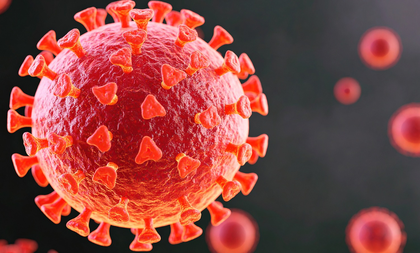Study shows how Covid virus shields itself during replication
By IANS | Updated: June 6, 2025 12:58 IST2025-06-06T12:51:40+5:302025-06-06T12:58:20+5:30
New Delhi, June 6 US researchers have identified a mechanism that SARS-CoV-2 -- the virus that causes Covid-19 ...

Study shows how Covid virus shields itself during replication
New Delhi, June 6 US researchers have identified a mechanism that SARS-CoV-2 -- the virus that causes Covid-19 -- uses to protect itself inside the body as it works to replicate and infect more cells.
Without this protective mechanism, viral infection is dramatically reduced, said the team from the Texas Biomedical Research Institute and the University of Chicago.
The finding, published in the journal Nature Communications, not only provides a potential target for new Covid therapies but also offers insights that could inform future vaccine and antiviral development.
The study builds on earlier work from Texas Biomed that identified ORF3a, a type of viral protein most important for the virus's pathogenicity, or ability to cause disease.
Specifically, the team found that SARS-CoV-2 ORF3a appears to play a vital role in protecting structural proteins, most notably the spike protein that facilitates spread into other cells, as they are assembled on the surface of viral particles.
It does this by driving the formation of a dense group of proteins that surround the spike protein and provide protection while in transit, much like security detail protecting a person or an armoured vehicle carrying cash to the bank, the researcher said.
Jueqi Chen, Assistant Professor at the University of Chicago, termed these protective complexes "3a dense bodies" or 3DBs for short.
It appears that 3DBs help prevent the spike protein from being cut into smaller components.
When ORF3a is missing, these 3DBs fail to form, and the spike protein often arrives damaged, severely impairing the nascent virus's ability to infect new cells, the expert said.
"ORF3a could therefore be a good target for drugs to block the virus," said Luis Martinez-Sobrido, Professor at Texas Biomed.
"This discovery could also be instrumental for vaccine development, as we illustrated previously," Martinez-Sobrido added.
Disclaimer: This post has been auto-published from an agency feed without any modifications to the text and has not been reviewed by an editor
Open in app